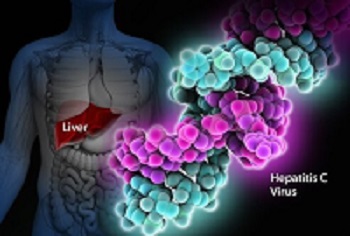What is Hep C?
Hepatitis (HEP-uh-TYE-tis) means inflammation or swelling of the liver. Hepatitis is usually caused by a virus, but can also be caused by other infections, toxins (drugs and alcohol), and certain medical conditions. There are different types of hepatitis. Hep C is one of them.
Hep C is caused by the hep C virus (HCV), which is spread through contact with blood from an infected person. Hep C starts as an acute infection, generally with no symptoms.
For most people, it will progress to a chronic infection, which means that the virus stays in the body for many years.
Chronic hep C can eventually lead to serious liver damage or liver failure.
How do you get Hep C?
The only way to get hep C is to come in contact with blood from a person infected with the virus.
Sharing needles, even one time, is the most common way people become infected with hep C today. Before 1992, however, the virus was often spread through blood transfusions and organ transplants.
Other ways to come in contact with infected blood:
- Being accidentally stuck by a needle used by someone infected with hep C
- Being born to a mother who has hep C
- Sharing personal items that may carry a small amount of infected blood, such as: razors, toothbrushes, piercing or tattooing needles/ink, or nail clippers
- Having unprotected sex with someone infected with hep C
- Having received blood products for hemophilia (hee-moe-FEE-lee-ah) before 1987
Who should get tested for Hep C?
Some situations may put a person at higher risk for getting hep C. People at risk should talk to their health care providers to get tested for hep C.
Talk to your health care provider if any of these apply to you:
- You were born between 1945 and 1965
- You have used injection drugs now or in the past
- You were treated for a blood clotting problem before 1987
- You received a blood transfusion or organ transplant before July 1992
- You have had kidney dialysis
- You have had abnormal liver tests or have liver disease
- You have been stuck with a needle or other sharp object that exposed you to an infected person's blood (usually applies to health care or public safety workers)
- You have HIV
How do you find out if you have Hep C?
Your health care provider will perform the following blood tests to see if you have hep C:
Antibody test: The antibody test is usually the first test your health care provider will do to see if you have hep C. Your body can take 3 to 12 weeks to produce antibodies after exposure to hep C. A positive antibody test means that, at some point in your life, you have been exposed to HCV. Having a positive antibody test does not always mean you have a chronic hep C infection.
Viral load test: If you test positive for hep C antibodies, your health care provider will give you a viral load test to see if you still have the virus in your body. If you test positive, it means that you have chronic hep C. Viral load will show the amount of virus in the blood.
You may not have any symptoms or even know that you are sick.
If you think you may be at risk, make an appointment with your health care provider.
How can you avoid giving Hep C to others?
To help prevent the spread of hep C, remember these important things:
- Do not share needles. Needles used for cosmetic procedures, steroids, or drugs may pass the hep C virus.
- Do not share personal care items. Toothbrushes, razors, nail clippers, glucose monitors, and other personal items may pass the hep C virus.
- Always practice safe sex to lower your risk of passing hep C.
Giving hep C to your family is very rare. Fewer than 1 in 1,000 family members get infected each year.
Hepatitis C Treatment Financial Assistance Program
We aim to provide highly coordinated and affordable medical services to patients living with Hepatitis C in Arizona. We provide intake services, health education, care coordination, medical transportation coordination, and financial assistance for medical services including outpatient visits, lab/radiology, immunizations and medications. Our hope is that through routine evaluation of patient needs, we can identify barriers to care and offer a tailored package of services to support patients through the treatment process for Hepatitis C.
For more information, call our dedicated hotline at (520) 626-3005.

